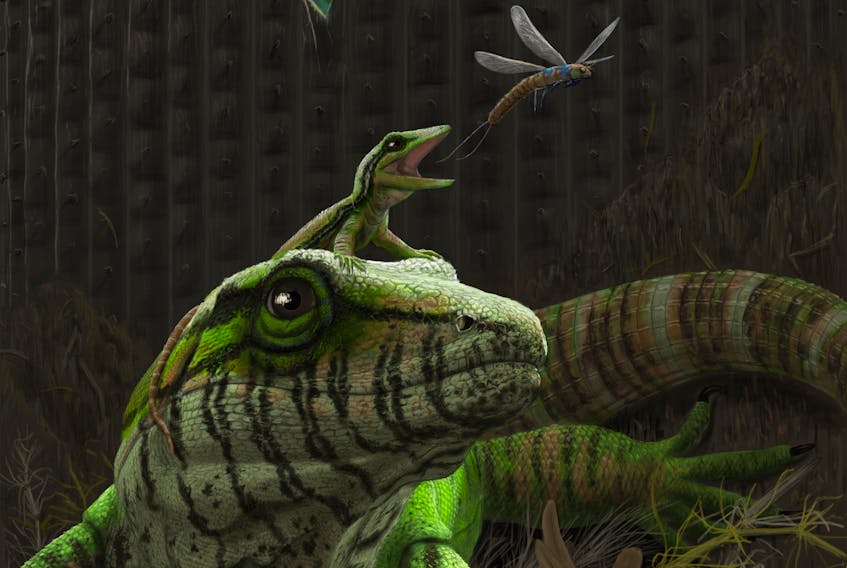OTTAWA, Ont. — An Ottawa researcher has discovered the oldest fossil evidence of parental behaviour in an early ancestor of mammals in Nova Scotia.
A team led by Carleton University’s Hillary Maddin has discovered the specimen of a varanopid synapsid inside a lithified tree stump on the east coast of Cape Breton Island, near Sydney. According to the university, the discovery predates the previous oldest record of this behaviour, uncovered in South Africa, by 40 million years. The find is featured in an article in the journal Nature Ecology & Evolution.

The preserved remains are of a small individual close to a large individual of the same species in a position resembling a parent denning with an offspring.
The specimen, called the Dendromaia unamakiensis gen. et sp. nov., from the Carboniferous period of Nova Scotia, approximately 300 million years ago — millions of years before dinosaurs roamed the earth in the Mesozoic Era.
“This is the earliest evidence of prolonged postnatal care in a vertebrate,” said Maddin, a professor in the Department of Earth Sciences in an emailed statement. “The adult animal appears to be concealing and protecting a juvenile in a den. This behaviour is very common in mammals today. It is interesting to see this animal, which is on the evolutionary line leading to mammals, exhibiting this behaviour so early.”
The preserved articulated partial skeleton has a unique combination of features, the university says, and represents a new species.
Though the varanopid synapsid is lizard-like in appearance, it is a member of the evolutionary branch that led to mammals and eventually humans. The other branch led to reptiles, birds and dinosaurs.
The university says scientists have attempted to answer questions about the origin of parental care by studying fossils. Evidence of parenting has been generally limited to finding groups of preserved specimens of varying ages of the same species.
Parental care is a behavioural strategy where parents make essentially make sacrifices to increase the health and chances of survival for their offspring
The kind of prolonged parental care displayed by the newly discovered specimen is among the most costly to a parent, and is most common in mammals.
However, the university says there is still little understanding of the evolutionary history of this behaviour.
RELATED:









